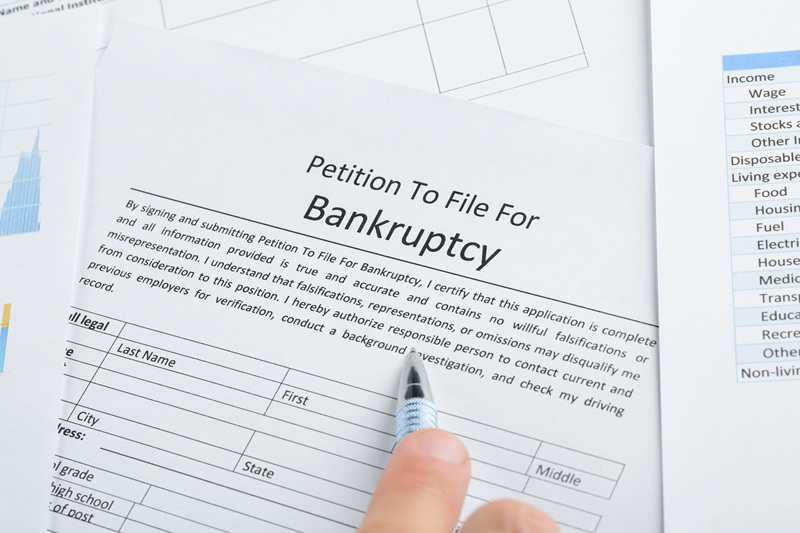
As a landlord, you may find yourself in a challenging position when a commercial tenant declares bankruptcy; caught between financial uncertainty and legal limitations. At Strategy Law, our skilled bankruptcy and creditors’ rights lawyers assist landlords in navigating the difficulties of enforcing their leases and safeguarding their interests during the bankruptcy procedure.
In this blog post, we break down what landlords need to know when a tenant files for bankruptcy, and why having the right legal guidance can make all the difference.
1. The Automatic Bankruptcy Stay: What It Means for Landlords
When a tenant voluntarily files for bankruptcy, the Bankruptcy Code imposes an automatic stay, a legal freeze that takes effect immediately. This stay halts, among other things:
- Eviction actions (even those already filed)
- Rent collection efforts outside the bankruptcy process
- Any other legal proceedings against the tenant
Unfortunately, tenants, particularly those whose leases are essential to their business, may sometimes use bankruptcy filings to delay eviction. However, landlords must proceed with caution. Violating the automatic stay can result in serious consequences, including penalties and damages. It’s critical to seek legal counsel before taking any action.
Strategy Tip: Let our Bankruptcy and Creditors’ Rights attorneys guide your communications and actions to avoid inadvertent violations of the automatic stay.
2. The Ipso Facto Clause: Not a Shortcut
“Ipso facto” clauses, which assert that the lease immediately ends upon bankruptcy or insolvency, are found in many business leases. Nevertheless, regardless of what the contract states, these provisions are typically unenforceable under bankruptcy law, which means that a tenant’s filing does not immediately end the lease..
3. Pre- and Post-Bankruptcy Obligations: The Stub Rent Dilemma
Under the Bankruptcy Code:
- Pre-petition obligations (e.g., unpaid rent before the filing) are treated as unsecured claims (low priority)
- Post-petition obligations (incurred after the filing) are treated as administrative expenses (high priority) and entitled to be paid in full
But what about rent owed in a month where the bankruptcy is filed mid-month?
Courts are split between two approaches:
- Billing Date Approach: Considers the entire month’s rent as a pre-petition claim if the rent was due before the bankruptcy filing.
- Proration Approach: Prorates the rent based on the number of days before and after the filing, treating the post-filing portion as a post-petition administrative expense.
This difference can significantly impact your recovery. Our attorneys can help you determine which approach your jurisdiction follows and ensure you’re pursuing the right claims.
4. Lease Assumption or Rejection: What You Need to Know
A tenant in bankruptcy must make a choice regarding their lease:
- Assume the lease, which requires curing all defaults and continuing to perform under its terms, or
- Reject the lease, which effectively terminates it and converts any unpaid rent into a general unsecured claim.
Deadlines:
- In Chapter 11, the debtor has 120 days to assume or reject a commercial lease
- In Chapter 7, the trustee has 60 days to assume or reject a residential lease
If no action is taken within the deadline (which can be extended by the court for cause), the lease is deemed rejected.
The rent due between the filing and rejection dates is considered a post-petition administrative claim, even after rejection, and is entitled to be paid in full.
5. Lease Assignment: Say Hello to a New Tenant
If the debtor assumes the lease, it can also assign it to another party. This third party might:
- Continue the tenant’s business, or
- Launch a new business altogether.
You might end up with a new tenant in any case. Although “adequate assurance of future performance” will be required by the court, landlords should be ready to defend their rights during this procedure.
6. Delayed Rent Payments: The 60-Day Gap
Courts may grant tenants an additional 60-90 days after filing, in both Chapter 11 and Chapter 7 cases, to decide whether to assume or reject a lease. During this period, tenants often withhold rent, adding to the financial strain and uncertainty faced by landlords, especially those already navigating regulatory restrictions.
Why Work With Strategy Law LLP
The Bankruptcy and Creditors’ Rights lawyers at Strategy Law offer landlords practical, outcome-driven assistance throughout tenant bankruptcies. We help you:
- Understand your rights under the automatic stay
- Navigate the nuances of pre- and post-petition rent
- File and amend claims appropriately
- Oppose unfavorable lease assumptions or assignments
- Recover administrative claims wherever possible
Final Thoughts
When a tenant files for bankruptcy, the landlord’s rights do not disappear, but it takes expertise and accuracy to assert them. You can make wise choices and maximize your recovery when Strategy Law’s bankruptcy and creditors’ rights lawyers are on your side.
Ready to protect your commercial property interests?
Contact Strategy Law LLP today to schedule a consultation with our trusted team.

